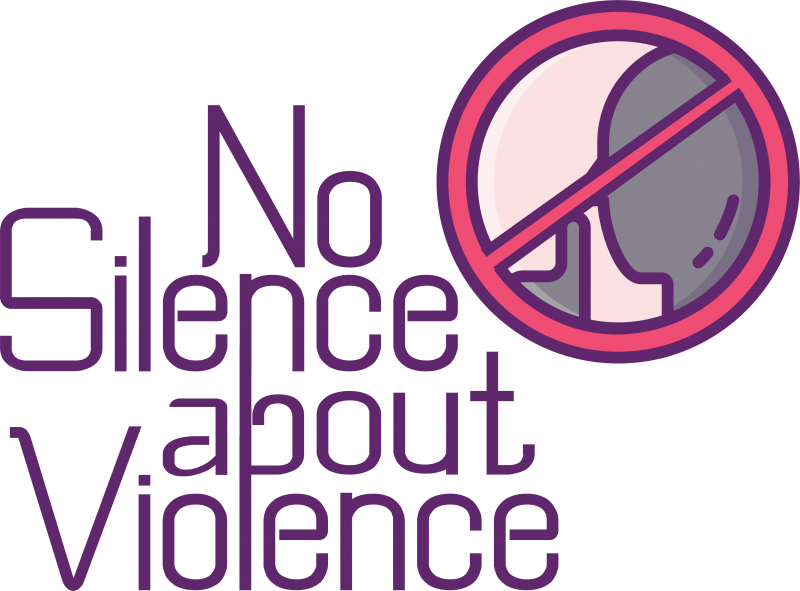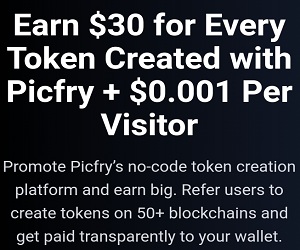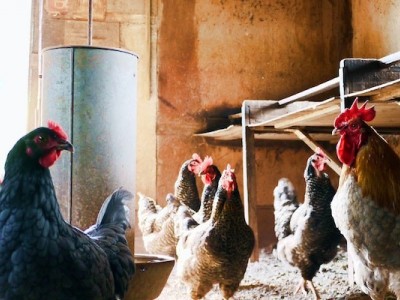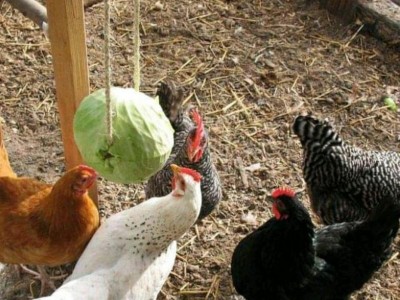
Other
 $0 raised of $1,000 goal
0.00%
$0 raised of $1,000 goal
0.00%
gender Based violence
by Adrian Tumelo
Created Feb 12, 2021 |
Botswana
- 0 Donations
- No deadline
- 0 Likes
this campaign is intended to help women and children whom are affected by the horrific and inhuman behavior, we should join hands and stop this violence from erasing the future leaders and mothers of tomorrow
In 2020, COVID-19 touched our lives in nearly every way, everywhere, as countries went into lockdown and restricted movement to contain the spread of the virus. As doors closed and isolation began, reports of all forms of violence against women and girls, particularly domestic violence, began to rise.The pandemic of violence against women is not new. Even before COVID-19 hit us, globally, 243 million women and girls were abused by their intimate partners in the past year. The COVID-19 pandemic intensified the violence, even as support services faltered and accessing help became harder.
1. Listen to and believe survivors When a woman shares her story of violence, she takes the first step to breaking the cycle of abuse.It’s on all of us to give her the safe space she needs to speak up and be heard.It’s important to remember that when discussing cases of sexual violence, a victim’s sobriety, clothes, and sexuality are irrelevant.The perpetrator is the sole reason for assault and must bear the responsibility alone. Call out victim-blaming and counter the idea that it’s on women to avoid situations that might be seen as “dangerous” by traditional standards.Survivors of violence are speaking out more than ever before, and everyone has a role to play to ensure they can have justice.Don’t say, “Why didn’t she leave?”Do say: “We hear you. We believe you. We stand with you.”2. Teach the next generation and learn from themThe examples we set for the younger generation shape the way they think about gender, respect and human rights. Start conversations about gender roles early on, and challenge the traditional features and characteristics assigned to men and women. Point out the stereotypes that children constantly encounter, whether in the media, on the street or at the school, and let them know that it’s OK to be different. Encourage a culture of acceptance.Talk about consent, bodily autonomy and accountability to boys and girls, and also listen to what they have to say about their experience of the world. By empowering young advocates with information, and educating them about women’s rights, we can build a better future for all.3. Call for responses and services fit for purpose
When a woman shares her story of violence, she takes the first step to breaking the cycle of abuse.It’s on all of us to give her the safe space she needs to speak up and be heard.It’s important to remember that when discussing cases of sexual violence, a victim’s sobriety, clothes, and sexuality are irrelevant.The perpetrator is the sole reason for assault and must bear the responsibility alone. Call out victim-blaming and counter the idea that it’s on women to avoid situations that might be seen as “dangerous” by traditional standards.Survivors of violence are speaking out more than ever before, and everyone has a role to play to ensure they can have justice.Don’t say, “Why didn’t she leave?”Do say: “We hear you. We believe you. We stand with you.”2. Teach the next generation and learn from themThe examples we set for the younger generation shape the way they think about gender, respect and human rights. Start conversations about gender roles early on, and challenge the traditional features and characteristics assigned to men and women. Point out the stereotypes that children constantly encounter, whether in the media, on the street or at the school, and let them know that it’s OK to be different. Encourage a culture of acceptance.Talk about consent, bodily autonomy and accountability to boys and girls, and also listen to what they have to say about their experience of the world. By empowering young advocates with information, and educating them about women’s rights, we can build a better future for all.3. Call for responses and services fit for purpose Services for survivors are essential services.This means that shelters, hotlines, counseling and all support for survivors of gender-based violence need to be available for those in need, even during the coronavirus pandemic.Every year, the 16 Days of Activism campaign calls for united, global action to end all forms of violence against women and girls.This year the United Nations, together with our partners, are demanding four critical actions, summarized by our 2020 campaign theme: FUND, RESPOND, PREVENT, COLLECT.Join us in calling on governments to bridge funding gaps to address violence against women and girls, ensure essential services for survivors of violence are maintained during this crisis, implement prevention measures, and invest in collecting the data necessary to adapt and improve life-saving services for women and girls.4. Understand consentFreely given, enthusiastic consent is mandatory, every time.Rather than listening for a “no,” make sure there is an active “yes,” from all involved. Adopt enthusiastic consent in your life and talk about it.Phrases like “she was asking for it” or “boys will be boys” attempt to blur the lines around sexual consent, placing blame on victims, and excusing perpetrators from the crimes they have committed.While those that use these lines may have fuzzy understandings of consent, the definition is crystal clear. When it comes to consent, there are no blurred lines.Learn more about consent>5. Learn the signs of abuse and how you can helpThere are many forms of abuse and all of them can have serious physical and emotional effects. If you’re concerned about a friend who may be experiencing violence or feels unsafe around someone, review these signs and learn about the ways to help them find safety and support.If you think someone is abusing you, help is available. You are not alone. If you’d like to talk with a trained advocate at a helpline, we compiled this list of resources around the world.6. Start a conversation
Services for survivors are essential services.This means that shelters, hotlines, counseling and all support for survivors of gender-based violence need to be available for those in need, even during the coronavirus pandemic.Every year, the 16 Days of Activism campaign calls for united, global action to end all forms of violence against women and girls.This year the United Nations, together with our partners, are demanding four critical actions, summarized by our 2020 campaign theme: FUND, RESPOND, PREVENT, COLLECT.Join us in calling on governments to bridge funding gaps to address violence against women and girls, ensure essential services for survivors of violence are maintained during this crisis, implement prevention measures, and invest in collecting the data necessary to adapt and improve life-saving services for women and girls.4. Understand consentFreely given, enthusiastic consent is mandatory, every time.Rather than listening for a “no,” make sure there is an active “yes,” from all involved. Adopt enthusiastic consent in your life and talk about it.Phrases like “she was asking for it” or “boys will be boys” attempt to blur the lines around sexual consent, placing blame on victims, and excusing perpetrators from the crimes they have committed.While those that use these lines may have fuzzy understandings of consent, the definition is crystal clear. When it comes to consent, there are no blurred lines.Learn more about consent>5. Learn the signs of abuse and how you can helpThere are many forms of abuse and all of them can have serious physical and emotional effects. If you’re concerned about a friend who may be experiencing violence or feels unsafe around someone, review these signs and learn about the ways to help them find safety and support.If you think someone is abusing you, help is available. You are not alone. If you’d like to talk with a trained advocate at a helpline, we compiled this list of resources around the world.6. Start a conversation Violence against women and girls is a human rights violation that’s been perpetuated for decades.It’s pervasive, but it’s not inevitable, unless we stay silent.Show your solidarity with survivors and where you stand in the fight for women’s rights by oranging your social media profile for the 16 Days of Activism – you can download banners for Facebook and Twitter here.On Instagram, you can use UN Women’s face filterto spread the word and encourage your community to do the same.Use #orangetheworld, #16Days and #GenerationEquality to start your own conversation about gender-based violence, or share some of the content from our social media package.7. Stand against rape cultureRape culture is the social environment that allows sexual violence to be normalized and justified, fueled by the persistent gender inequalities and attitudes about gender and sexuality. Naming it is the first step to dismantling rape culture.Every day we have the opportunity to examine our behaviours and beliefs for biases that permit rape culture to continue. Think about how you define masculinity and femininity, and how your own biases and stereotypes influence you.From the attitudes we have about gender identities to the policies we support in our communities, we can all take action to stand against rape culture.Learn more ways to stand against rape culture>8. Fund women’s organizationsDonate to local organizations that empower women, amplify their voices, support survivors, and promote acceptance of all gender identities and sexualities.UN Women works with women’s organizations everywhere to end violence against women, assist survivors, and secure equal rights for women and girls everywhere. Donate now at https://donate.unwomen.org/en.9. Hold each other accountable
Violence against women and girls is a human rights violation that’s been perpetuated for decades.It’s pervasive, but it’s not inevitable, unless we stay silent.Show your solidarity with survivors and where you stand in the fight for women’s rights by oranging your social media profile for the 16 Days of Activism – you can download banners for Facebook and Twitter here.On Instagram, you can use UN Women’s face filterto spread the word and encourage your community to do the same.Use #orangetheworld, #16Days and #GenerationEquality to start your own conversation about gender-based violence, or share some of the content from our social media package.7. Stand against rape cultureRape culture is the social environment that allows sexual violence to be normalized and justified, fueled by the persistent gender inequalities and attitudes about gender and sexuality. Naming it is the first step to dismantling rape culture.Every day we have the opportunity to examine our behaviours and beliefs for biases that permit rape culture to continue. Think about how you define masculinity and femininity, and how your own biases and stereotypes influence you.From the attitudes we have about gender identities to the policies we support in our communities, we can all take action to stand against rape culture.Learn more ways to stand against rape culture>8. Fund women’s organizationsDonate to local organizations that empower women, amplify their voices, support survivors, and promote acceptance of all gender identities and sexualities.UN Women works with women’s organizations everywhere to end violence against women, assist survivors, and secure equal rights for women and girls everywhere. Donate now at https://donate.unwomen.org/en.9. Hold each other accountable Violence can take many forms, including sexual harassment in the workplace and in public spaces.Take a stand by calling it out when you see it: catcalling, inappropriate sexual comments and sexist jokes are never okay.Create a safer environment for everyone by challenging your peers to reflect on their own behaviour and speaking up when someone crosses the line, or by enlisting the help of others if you don’t feel safe.As always, listen to survivors and make sure they have the support they need.
Violence can take many forms, including sexual harassment in the workplace and in public spaces.Take a stand by calling it out when you see it: catcalling, inappropriate sexual comments and sexist jokes are never okay.Create a safer environment for everyone by challenging your peers to reflect on their own behaviour and speaking up when someone crosses the line, or by enlisting the help of others if you don’t feel safe.As always, listen to survivors and make sure they have the support they need.
10. Know the data and demand more of itTo effectively combat gender-based violence, we need to understand the issue. Relevant data collection is key to implementing successful prevention measures and providing survivors with the right support.As gender-based violence has spiked during COVID-19, the gaps in gender sensitive data collection have become more glaring than ever. Call on your government to invest in the collection of data on gender-based violence.
In 2020, COVID-19 touched our lives in nearly every way, everywhere, as countries went into lockdown and restricted movement to contain the spread of the virus. As doors closed and isolation began, reports of all forms of violence against women and girls, particularly domestic violence, began to rise.The pandemic of violence against women is not new. Even before COVID-19 hit us, globally, 243 million women and girls were abused by their intimate partners in the past year. The COVID-19 pandemic intensified the violence, even as support services faltered and accessing help became harder.
1. Listen to and believe survivors
 When a woman shares her story of violence, she takes the first step to breaking the cycle of abuse.It’s on all of us to give her the safe space she needs to speak up and be heard.It’s important to remember that when discussing cases of sexual violence, a victim’s sobriety, clothes, and sexuality are irrelevant.The perpetrator is the sole reason for assault and must bear the responsibility alone. Call out victim-blaming and counter the idea that it’s on women to avoid situations that might be seen as “dangerous” by traditional standards.Survivors of violence are speaking out more than ever before, and everyone has a role to play to ensure they can have justice.Don’t say, “Why didn’t she leave?”Do say: “We hear you. We believe you. We stand with you.”2. Teach the next generation and learn from themThe examples we set for the younger generation shape the way they think about gender, respect and human rights. Start conversations about gender roles early on, and challenge the traditional features and characteristics assigned to men and women. Point out the stereotypes that children constantly encounter, whether in the media, on the street or at the school, and let them know that it’s OK to be different. Encourage a culture of acceptance.Talk about consent, bodily autonomy and accountability to boys and girls, and also listen to what they have to say about their experience of the world. By empowering young advocates with information, and educating them about women’s rights, we can build a better future for all.3. Call for responses and services fit for purpose
When a woman shares her story of violence, she takes the first step to breaking the cycle of abuse.It’s on all of us to give her the safe space she needs to speak up and be heard.It’s important to remember that when discussing cases of sexual violence, a victim’s sobriety, clothes, and sexuality are irrelevant.The perpetrator is the sole reason for assault and must bear the responsibility alone. Call out victim-blaming and counter the idea that it’s on women to avoid situations that might be seen as “dangerous” by traditional standards.Survivors of violence are speaking out more than ever before, and everyone has a role to play to ensure they can have justice.Don’t say, “Why didn’t she leave?”Do say: “We hear you. We believe you. We stand with you.”2. Teach the next generation and learn from themThe examples we set for the younger generation shape the way they think about gender, respect and human rights. Start conversations about gender roles early on, and challenge the traditional features and characteristics assigned to men and women. Point out the stereotypes that children constantly encounter, whether in the media, on the street or at the school, and let them know that it’s OK to be different. Encourage a culture of acceptance.Talk about consent, bodily autonomy and accountability to boys and girls, and also listen to what they have to say about their experience of the world. By empowering young advocates with information, and educating them about women’s rights, we can build a better future for all.3. Call for responses and services fit for purpose Services for survivors are essential services.This means that shelters, hotlines, counseling and all support for survivors of gender-based violence need to be available for those in need, even during the coronavirus pandemic.Every year, the 16 Days of Activism campaign calls for united, global action to end all forms of violence against women and girls.This year the United Nations, together with our partners, are demanding four critical actions, summarized by our 2020 campaign theme: FUND, RESPOND, PREVENT, COLLECT.Join us in calling on governments to bridge funding gaps to address violence against women and girls, ensure essential services for survivors of violence are maintained during this crisis, implement prevention measures, and invest in collecting the data necessary to adapt and improve life-saving services for women and girls.4. Understand consentFreely given, enthusiastic consent is mandatory, every time.Rather than listening for a “no,” make sure there is an active “yes,” from all involved. Adopt enthusiastic consent in your life and talk about it.Phrases like “she was asking for it” or “boys will be boys” attempt to blur the lines around sexual consent, placing blame on victims, and excusing perpetrators from the crimes they have committed.While those that use these lines may have fuzzy understandings of consent, the definition is crystal clear. When it comes to consent, there are no blurred lines.Learn more about consent>5. Learn the signs of abuse and how you can helpThere are many forms of abuse and all of them can have serious physical and emotional effects. If you’re concerned about a friend who may be experiencing violence or feels unsafe around someone, review these signs and learn about the ways to help them find safety and support.If you think someone is abusing you, help is available. You are not alone. If you’d like to talk with a trained advocate at a helpline, we compiled this list of resources around the world.6. Start a conversation
Services for survivors are essential services.This means that shelters, hotlines, counseling and all support for survivors of gender-based violence need to be available for those in need, even during the coronavirus pandemic.Every year, the 16 Days of Activism campaign calls for united, global action to end all forms of violence against women and girls.This year the United Nations, together with our partners, are demanding four critical actions, summarized by our 2020 campaign theme: FUND, RESPOND, PREVENT, COLLECT.Join us in calling on governments to bridge funding gaps to address violence against women and girls, ensure essential services for survivors of violence are maintained during this crisis, implement prevention measures, and invest in collecting the data necessary to adapt and improve life-saving services for women and girls.4. Understand consentFreely given, enthusiastic consent is mandatory, every time.Rather than listening for a “no,” make sure there is an active “yes,” from all involved. Adopt enthusiastic consent in your life and talk about it.Phrases like “she was asking for it” or “boys will be boys” attempt to blur the lines around sexual consent, placing blame on victims, and excusing perpetrators from the crimes they have committed.While those that use these lines may have fuzzy understandings of consent, the definition is crystal clear. When it comes to consent, there are no blurred lines.Learn more about consent>5. Learn the signs of abuse and how you can helpThere are many forms of abuse and all of them can have serious physical and emotional effects. If you’re concerned about a friend who may be experiencing violence or feels unsafe around someone, review these signs and learn about the ways to help them find safety and support.If you think someone is abusing you, help is available. You are not alone. If you’d like to talk with a trained advocate at a helpline, we compiled this list of resources around the world.6. Start a conversation Violence against women and girls is a human rights violation that’s been perpetuated for decades.It’s pervasive, but it’s not inevitable, unless we stay silent.Show your solidarity with survivors and where you stand in the fight for women’s rights by oranging your social media profile for the 16 Days of Activism – you can download banners for Facebook and Twitter here.On Instagram, you can use UN Women’s face filterto spread the word and encourage your community to do the same.Use #orangetheworld, #16Days and #GenerationEquality to start your own conversation about gender-based violence, or share some of the content from our social media package.7. Stand against rape cultureRape culture is the social environment that allows sexual violence to be normalized and justified, fueled by the persistent gender inequalities and attitudes about gender and sexuality. Naming it is the first step to dismantling rape culture.Every day we have the opportunity to examine our behaviours and beliefs for biases that permit rape culture to continue. Think about how you define masculinity and femininity, and how your own biases and stereotypes influence you.From the attitudes we have about gender identities to the policies we support in our communities, we can all take action to stand against rape culture.Learn more ways to stand against rape culture>8. Fund women’s organizationsDonate to local organizations that empower women, amplify their voices, support survivors, and promote acceptance of all gender identities and sexualities.UN Women works with women’s organizations everywhere to end violence against women, assist survivors, and secure equal rights for women and girls everywhere. Donate now at https://donate.unwomen.org/en.9. Hold each other accountable
Violence against women and girls is a human rights violation that’s been perpetuated for decades.It’s pervasive, but it’s not inevitable, unless we stay silent.Show your solidarity with survivors and where you stand in the fight for women’s rights by oranging your social media profile for the 16 Days of Activism – you can download banners for Facebook and Twitter here.On Instagram, you can use UN Women’s face filterto spread the word and encourage your community to do the same.Use #orangetheworld, #16Days and #GenerationEquality to start your own conversation about gender-based violence, or share some of the content from our social media package.7. Stand against rape cultureRape culture is the social environment that allows sexual violence to be normalized and justified, fueled by the persistent gender inequalities and attitudes about gender and sexuality. Naming it is the first step to dismantling rape culture.Every day we have the opportunity to examine our behaviours and beliefs for biases that permit rape culture to continue. Think about how you define masculinity and femininity, and how your own biases and stereotypes influence you.From the attitudes we have about gender identities to the policies we support in our communities, we can all take action to stand against rape culture.Learn more ways to stand against rape culture>8. Fund women’s organizationsDonate to local organizations that empower women, amplify their voices, support survivors, and promote acceptance of all gender identities and sexualities.UN Women works with women’s organizations everywhere to end violence against women, assist survivors, and secure equal rights for women and girls everywhere. Donate now at https://donate.unwomen.org/en.9. Hold each other accountable Violence can take many forms, including sexual harassment in the workplace and in public spaces.Take a stand by calling it out when you see it: catcalling, inappropriate sexual comments and sexist jokes are never okay.Create a safer environment for everyone by challenging your peers to reflect on their own behaviour and speaking up when someone crosses the line, or by enlisting the help of others if you don’t feel safe.As always, listen to survivors and make sure they have the support they need.
Violence can take many forms, including sexual harassment in the workplace and in public spaces.Take a stand by calling it out when you see it: catcalling, inappropriate sexual comments and sexist jokes are never okay.Create a safer environment for everyone by challenging your peers to reflect on their own behaviour and speaking up when someone crosses the line, or by enlisting the help of others if you don’t feel safe.As always, listen to survivors and make sure they have the support they need.10. Know the data and demand more of itTo effectively combat gender-based violence, we need to understand the issue. Relevant data collection is key to implementing successful prevention measures and providing survivors with the right support.As gender-based violence has spiked during COVID-19, the gaps in gender sensitive data collection have become more glaring than ever. Call on your government to invest in the collection of data on gender-based violence.



Trending Campaign
Top Trending Campaigns

Memorial
 by Justin Harnish
No deadline
by Justin Harnish
No deadline
Henry Memorial Fund
As many of you know by now, we tragically lost an amazing man in our community N...
$52,990
105.98%
raised of $50,000

Animal
 by Derek Knox
No deadline
by Derek Knox
No deadline
Help Our Farm During the Covid-19 Crisis
Help Our Farm During the Covid-19 Crisis
$52,230
261.15%
raised of $20,000

Animal
 by Derek Knox
No deadline
by Derek Knox
No deadline
Koala Crisis Emergency Funds
Koala Crisis Emergency Funds. Please donate as soon as possible. Thanks
$51,825
647.81%
raised of $8,000
Featured Campaigns
Campaigns selected by our team

Animal
 by Chris Poole
No deadline
by Chris Poole
No deadline
Horse Farm Needed Funds
Horses farm needed funds. Please help us. Thank you
$49,255
98.51%
raised of $50,000

Animal
 by Lachlan Bailey
No deadline
by Lachlan Bailey
No deadline
Support Wildlife
We need urgent funds for wildlife.
$47,165
47.17%
raised of $100,000

Animal
 by Christian Frank
No deadline
by Christian Frank
No deadline
Help Feed the Animals During Lockdown
Help Feed the Animals During Lockdown
$48,805
976.10%
raised of $5,000
Related Campaigns
Take a look at other campaigns in the same category.

Other
 by I.R
No deadline
by I.R
No deadline
Print on demand
Hello everyone, I would like to start a small printing business in order to have...
$0
0.00%
raised of $10,000

Other
 by JOHN SABORNIDO
No deadline
by JOHN SABORNIDO
No deadline
MOTOVLOGGING
Dream to have a motorcycle for motovlogging to capture beautiful scenery in the...
$0
0.00%
raised of $2,000

Other
 by Ssegawa Emmanuel
No deadline
by Ssegawa Emmanuel
No deadline
I want to promote agriculture in Africa
Am ssegawa Emmanuel from Kampala Uganda I need funding of about $30000 to start...
$0
0.00%
raised of $30,000